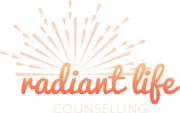16 Days of Activism – a Campaign Against Gender-Based Violence
Content warning: may be triggering for those who have experienced or know someone who has experienced intimate partner violence, sexual violence or gender-based violence. If you are experiencing abuse, contact VictimLink at 1-800-563-0808.
This post is part of the 16 Days of Activism Against Gender-Based Violence, an annual initiative committed to ending violence against women worldwide. This post gives an overview of the campaign as well as information about abuse and gender-based violence.
Awareness: The Faces

Photo by Danie Franco on Unsplash
I started this post with some facts and figures (listed below) gathered from many research studies to identify the scope and size of violence against women and girls in Canada and around the world, But it is too easy to get lost in the numbers.
Because of the stigma around gender-based violence, much of it is not reported, or it is downplayed, under-reported or even normalized. But it is important to be able to connect those numbers with an individual, so here are some personal accounts from survivors of gender-based violence who have bravely shared their stories. Many of my client’s stories are similar, because the patterns of abuse are consistent, but each has had their own journey recovering from trauma and their own unique acts of resilience.
Awareness: The Facts

And now here is the data:
- 44% of women reported experiencing some form of IPV in their lifetime (with certain marginalized populations being over-represented in this number) (source)
- Every six days, a woman in Canada is killed by her intimate partner (source).
- Every 2.5 days a woman or girl is killed in Canada (source)
- Indigenous women are 6x more likely to be killed than non-Indigenous women in Canada (source). “As of March 31, 2010, there were 582 known cases of missing or murdered Aboriginal women in Canada. 115 (20%) of 582 cases involve missing women and girls. The Canadian Government has been urged to take real action to stop violence against Aboriginal girls and women by United Nations and Amnesty International (source).
- 33% of women will experience sexual assault at least once in their lifetime (source)
- 19,000 domestic abuse survivors become homeless every year (source)
- More than 3,000 women and their children are living in an emergency shelter to escape abuse in Canada (source)
- Less than 40 per cent of women who experience violence seek help (source)
Since the pandemic began, intimate partner violence and violence against women has gotten much worse.
- 45% of women reported that they or a woman they know has experienced a form of VAWG.
- 6 in 10 felt that sexual harassment in public spaces has worsened.
- 7 in 10 women said they think that verbal or physical abuse by a partner has become more common (source).


From: Measuring the Shadow Pandemic: Violence Against Women During Covid-19 – UN Women
Awareness: Resources
If you or someone you know needs help with an abusive situation, reach out immediately to a crisis line, counsellor, or doctor. These are confidential, supportive places that will be able to give you information and get you help.
- VictimLink BC: 1-800-563-0808. This is a toll-free, confidential, multilingual service that can be accessed by calling, texting or emailing VictimLinkBC@bc211.ca.
- Battered Women’s Support Services (BWSS) crisis line: 604-652-1867 (call or text) and comprehensive online resource including legal services and safety planning, as well as information for advocacy
- BC Society of Transition Houses– a list of transition houses and services for women fleeing abuse
- Vancouver Rape Relief & Shelter – 24 hour rape crisis line & transition house for women
- ShelterSafe.ca – a clickable map showing the nearest shelter for women and their children seeking safety from abuse.
- Domestic shelters – a database of shelters for survivors needing a place to stay, but this site also has comprehensive online resource section of information
- How to create a safety plan
- Surrey Women’s Centre in-person resource centre with free counselling, legal and housing support for survivors of abuse
- List of support services by province
Below are resources for learning more about gender-based violence and the initiative to end it.
- Ending Violence Association of BC – organization with training and support
- Ending Violence Association of Canada – research, education, policy, and advocacy at the national level
- Government of Canada Gender-based Violence Knowledge Centre – information and resources on GBV as well as the work the government is doing to end it
- Red Flag Campaign – education about GBV directed at students
#PushForward: Act to End Violence against Women and Girls #16Days



